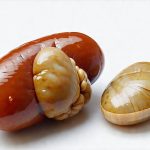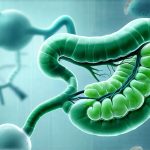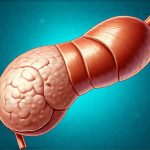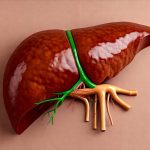The gallbladder, often underestimated, plays a vital role in digestion, primarily by storing and concentrating bile produced by the liver. This greenish-yellow fluid is crucial for breaking down fats during digestion, allowing your body to absorb essential nutrients like fat-soluble vitamins (A, D, E, and K). Issues with gallbladder function can lead to uncomfortable symptoms such as bloating, abdominal pain, nausea, and even more serious complications if left unaddressed. While many factors influence gallbladder health – genetics, diet, overall lifestyle – dietary fiber emerges as a surprisingly powerful ally in maintaining its optimal performance and preventing common issues like gallstones. A focus on adequate fiber intake isn’t just about regularity; it’s fundamentally linked to how efficiently your digestive system processes fats and manages cholesterol levels, directly impacting gallbladder wellbeing.
Many people associate gallbladder problems solely with high-fat diets, but the connection is more nuanced. It’s not necessarily how much fat you consume, but rather how your body processes it. Insufficient fiber intake disrupts this process, leading to a higher concentration of bile acids and cholesterol in the gallbladder. Over time, these can crystallize and form gallstones – hardened deposits that can block bile ducts, causing significant pain and inflammation. Conversely, increasing fiber intake helps regulate bile acid reabsorption, reducing its concentration and minimizing the risk of stone formation. It also promotes healthy bowel movements, which are essential for eliminating waste products and preventing stagnation within the digestive system, further supporting gallbladder function.
The Role of Fiber in Bile Acid Metabolism
Fiber isn’t a passive ingredient; it actively participates in metabolic processes that directly benefit the gallbladder. Its influence stems largely from its impact on bile acid metabolism – how your body utilizes and reabsorbs these crucial compounds. When fiber is present in the digestive tract, it binds to bile acids, preventing their reabsorption in the small intestine. This forces the liver to pull cholesterol from the bloodstream to create more bile acids, effectively lowering LDL (“bad”) cholesterol levels while simultaneously reducing the concentration of cholesterol within the gallbladder itself.
This process isn’t just about preventing gallstone formation; it’s about maintaining a healthy balance. The normal reabsorption of bile acids helps conserve these valuable resources, but excessive reabsorption can lead to a build-up of cholesterol and increased risk of stones. Fiber acts as a regulator, striking the right balance between conservation and elimination. Different types of fiber – soluble and insoluble – contribute in different ways. Soluble fiber, found in foods like oats, beans, and apples, forms a gel-like substance that effectively binds to bile acids. Insoluble fiber, present in whole grains, vegetables, and bran, adds bulk to stool and promotes faster transit time through the digestive system, further aiding in elimination.
A diet consistently lacking in fiber disrupts this delicate balance, leading to increased reabsorption of bile acids, a higher concentration of cholesterol in the gallbladder, and an elevated risk of gallstone formation. It’s important to remember that this isn’t about eliminating fats entirely; it’s about creating a digestive environment where fat is processed efficiently and healthily, with fiber playing a central role in that process.
Fiber & Gallbladder Disease Prevention
Beyond the mechanics of bile acid metabolism, adequate fiber intake offers broader preventative benefits for gallbladder disease. Chronic inflammation is often a precursor to many health issues, including gallbladder problems. Fiber-rich foods are packed with antioxidants and phytonutrients that combat inflammation throughout the body. These compounds help protect cells from damage caused by free radicals, reducing overall inflammatory burden and lowering the risk of chronic conditions.
Furthermore, fiber’s impact on gut health is significant. A healthy gut microbiome – the community of bacteria residing in your digestive tract – is crucial for overall wellbeing, including gallbladder function. Fiber serves as a prebiotic, providing nourishment for beneficial gut bacteria. These bacteria play a role in regulating digestion, reducing inflammation, and even influencing immune function. An imbalance in gut bacteria (dysbiosis) has been linked to increased risk of various health problems, including gallstone formation. By promoting a thriving gut microbiome through fiber intake, you’re actively supporting gallbladder health indirectly.
Ultimately, prioritizing fiber is a proactive step towards preventing gallbladder disease and maintaining optimal digestive function. It’s not a cure-all, but it’s a powerful tool that can significantly reduce your risk of developing problems down the line.
Increasing Your Fiber Intake: Practical Steps
Many people struggle to consume enough fiber in their daily diets. The recommended daily intake is around 25-30 grams, yet most individuals fall short. Making gradual changes is key – avoid drastically increasing fiber all at once, as this can lead to bloating and discomfort. Here’s a step-by-step approach:
- Start Small: Begin by adding one or two servings of high-fiber foods to your diet each day. For example, swap white bread for whole wheat bread, add a handful of berries to your breakfast cereal, or include a side of steamed vegetables with your dinner.
- Read Labels: Pay attention to the fiber content listed on food packaging. Look for products labeled “whole grain” and choose options with at least 3-5 grams of fiber per serving.
- Hydrate Adequately: Fiber absorbs water, so it’s crucial to drink plenty of fluids throughout the day when increasing your intake. This helps prevent constipation and ensures that fiber can move smoothly through your digestive system.
Food Sources Rich in Fiber
A diverse range of foods offer significant fiber benefits. Focusing on whole, unprocessed options is always best. Here are some excellent sources to incorporate into your diet:
- Fruits: Berries (raspberries, blueberries), apples (with skin), pears (with skin), bananas
- Vegetables: Broccoli, Brussels sprouts, spinach, carrots, sweet potatoes
- Legumes: Beans (kidney beans, black beans), lentils, chickpeas
- Whole Grains: Oats, quinoa, brown rice, whole wheat bread, barley
- Nuts & Seeds: Chia seeds, flaxseeds, almonds, walnuts
Experiment with different foods to find what you enjoy and can easily incorporate into your meals. Remember that variety is key – consuming a range of fiber-rich foods provides different types of fiber and maximizes the benefits for your gallbladder and overall health.
Addressing Common Concerns & Misconceptions
One common concern regarding increased fiber intake is potential digestive discomfort, such as bloating or gas. As mentioned earlier, gradual introduction is crucial to allow your gut microbiome time to adjust. Start with small amounts and gradually increase over several weeks. Staying well-hydrated also helps minimize these effects. Another misconception is that all fiber is created equal; understanding the difference between soluble and insoluble fiber can help you tailor your intake to specific needs.
Finally, it’s important to remember that fiber alone isn’t a magic bullet for gallbladder health. A holistic approach – encompassing a balanced diet, regular exercise, maintaining a healthy weight, and managing stress levels – is essential for optimal wellbeing. Fiber should be viewed as an integral part of a broader lifestyle strategy focused on preventative care.
Disclaimer: This article provides general information about fiber intake and its potential benefits for gallbladder function. It is not intended to provide medical advice or replace the guidance of a qualified healthcare professional. If you have concerns about your gallbladder health, please consult with a doctor or registered dietitian.


















